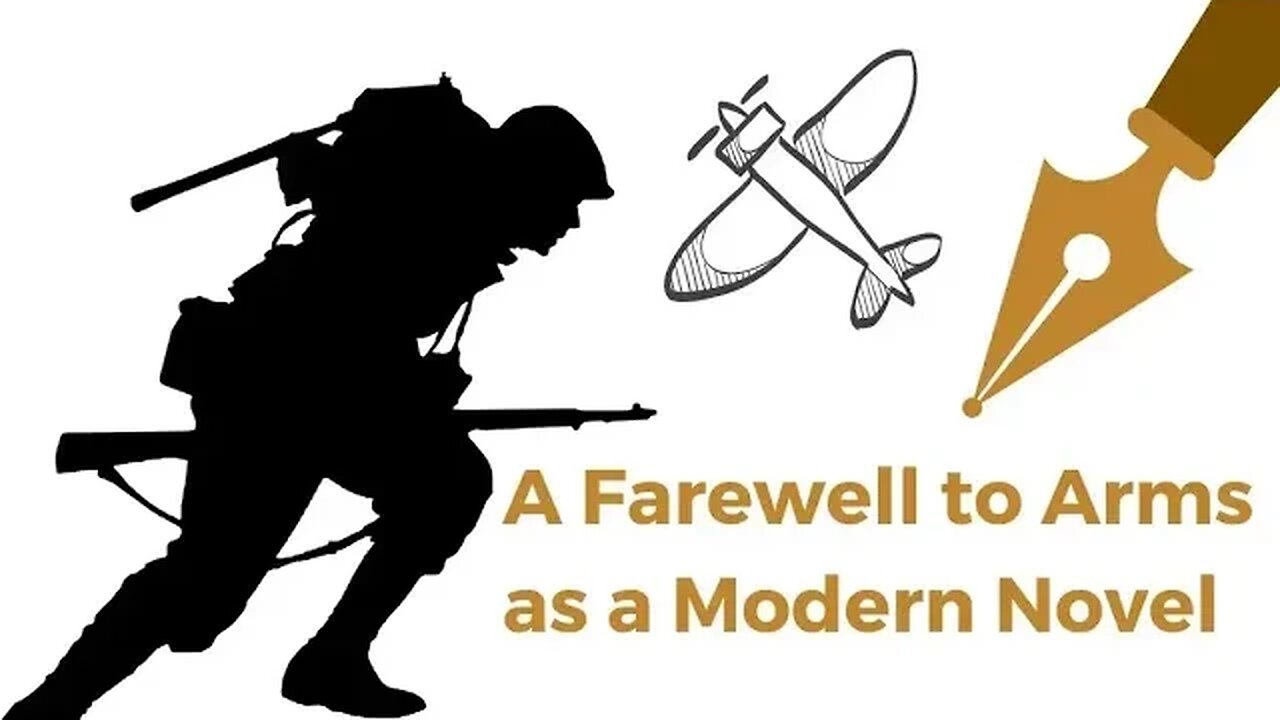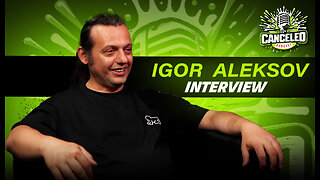Premium Only Content

A Farewell to Arms as a Modern Novel
Welcome to our explainer video on Ernest Hemingway's novel, "A Farewell to Arms," and its status as a modern novel. In this video, we will explore the key characteristics and elements that make it a masterpiece of modern literature.
What is a Modern Novel?
Let's first understand what defines a modern novel. Modern literature emerged in the 20th and 21st centuries, characterized by its departure from traditional storytelling. Notable modern novelists include James Joyce, Virginia Woolf, Franz Kafka, F Scott Fitzgerald, and Toni Morrison.
Characteristics of Modern Novel.
Modern novels possess distinct features that set them apart. These characteristics include psychological complexity, the use of stream-of-consciousness technique, themes related to subjectivity, experimentalism, ambiguity, realism, and exploration of nontraditional subjects.
Psychological Complexity in A Farewell to Arms.
"A Farewell to Arms" truly embraces psychological complexity. Through the protagonist, Frederic Henry, Hemingway delves into the intricacies of his character's mind, exploring fears, anxieties, desires, and the search for meaning in a chaotic world. The novel reflects the universal psychological impact of World War I on individuals.
Stream of Consciousness in A Farewell to Arms.
Hemingway employs the stream-of-consciousness technique, another hallmark of modern literature, in "A Farewell to Arms". This technique allows readers to experience Frederic Henry's continuous flow of thoughts and memories. It immerses us in his recollections and emotions, offering a unique perspective on his experiences.
Themes Related to Subjectivity in A Farewell to Arms.
The novel portrays themes related to subjectivity, emphasizing individual experiences and perceptions of reality. Hemingway depicts realistic themes, often contrasting Frederic's personal viewpoint with official propaganda. Moreover, he explores the subjectivity of memory, revealing how pain and suffering color one's recollections.
Experimentalism.
Hemingway's experimental approach contributes to the novel's modernity. He employs a minimalistic prose style, using understated language and ambiguous symbols. By doing so, Hemingway invites readers to interpret the novel's themes and meaning for themselves.
Ambiguity in A Farewell to Arms.
Ambiguity is a crucial aspect of modern novels, and "A Farewell to Arms" embraces it fully. The novel presents conflicting ideas, such as the intertwining of love and sacrifice, the futility of sacrifices made for love, and the ambiguous portrayal of heroism and war. Hemingway's use of symbolism enhances the ambiguity, allowing readers to draw their own conclusions.
Realism in A Farewell to Arms.
Realism is a defining characteristic of "A Farewell to Arms". Hemingway's own experiences as an ambulance driver during World War I provide the foundation for the novel's realistic portrayal of events. From the physical environment to the characters' thoughts and emotions, Hemingway's attention to detail creates an authentic and believable world.
Nontraditional Subjects.
Hemingway fearlessly explores nontraditional subjects, including sexuality, race, gender, and identity in "A Farewell to Arms". By addressing these issues, the novel challenges societal norms and further establishes itself as a modern work.
Read more at:
https://askliterature.com/novel/a-farewell-to-arms-as-a-modern-novel/
00:00 - Introduction
00:14 - What is a Modern Novel?
00:37 - Characteristics of Modern Novel
00:58 - Psychological Complexity in A Farewell to Arms
01:25 - Stream of Consciousness in A Farewell to Arms
01:50 - Themes Related to Subjectivity in A Farewell to Arms
02:16 - Experimentalism
02:37 - Ambiguity in A Farewell to Arms
03:05 - Realism in A Farewell to Arms
03:31 - Nontraditional Subjects
-
 20:48
20:48
Stephen Gardner
17 hours ago🚨You WON'T BELIEVE what just happened to Trump & George Soros!
19.1K363 -
 16:54
16:54
Forrest Galante
5 hours ago6 Animals You'll Be Glad Are Extinct
22.5K48 -
 LIVE
LIVE
Sgt Wilky Plays
2 hours agoFathers day coffee and Karting
535 watching -
 LIVE
LIVE
Lofi Girl
2 years agolofi hip hop radio 📚 - beats to relax/study to
1,106 watching -
 36:15
36:15
Athlete & Artist Show
21 hours ago $0.35 earnedOilers In 6?, Where Will Marner Go?, Who Do The Hawks Draft?
4.78K2 -
 8:07
8:07
Freedom Frontline
20 hours agoTim Dillon SLAMS Woke Elites – This Is Brilliant
6.31K3 -
 LIVE
LIVE
TheItalianCEO
2 hours agoI love the smell of Video Games in the morning...
154 watching -
 LIVE
LIVE
xTimsanityx
5 hours ago🟢LIVE: THE BORNLESS - APEX LEGENDS AFTER - HAPPY FATHERS DAY
104 watching -
 49:24
49:24
TheGetCanceledPodcast
18 hours ago $0.53 earnedThe GCP Ep.12 | Igor Aleksov Talks Indie Films, Lena & Vladimir, Big Festivals & Award Shows
7.02K -
 10:21
10:21
MrBigKid
23 hours ago $0.68 earnedUltimate Romeo M17 RXM Build
9.08K3